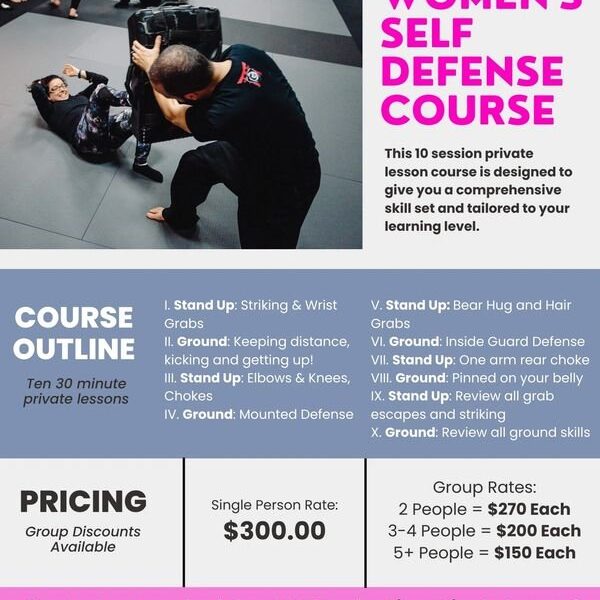If you’re searching for self defense classes near me, you’re already taking a proactive step towards personal safety and empowerment. These classes teach practical techniques that boost your confidence and equip you to handle challenging situations.
Finding a local class that fits your schedule can be easy if you know where to look. Whether you want to learn martial arts, Krav Maga, or basic self-defense techniques, options abound in your area.
Join a community of learners and feel empowered to defend yourself with skill and confidence. Your safety is worth investing in, so start exploring today!
Self Defense Classes Near Me: Your Comprehensive Guide
Finding the right self-defense classes in your area can empower you with essential skills and confidence. This guide covers various aspects of self-defense classes, so you can discover the best option for your needs. By the end of this article, you will have a clear understanding of what to look for in self-defense classes near you, the different styles available, and how to choose the right one.
Why Take Self Defense Classes?
Self-defense classes offer several benefits that go beyond just learning to protect yourself. Here are some reasons why you might consider signing up for a class:
- Increased Confidence: Knowing how to defend yourself can boost your self-esteem and help you feel more secure in everyday situations.
- Physical Fitness: Many self-defense classes incorporate physical training, which can improve your strength, flexibility, and stamina.
- Situational Awareness: These classes teach you to be more aware of your surroundings, helping you to avoid dangerous situations before they escalate.
- Stress Relief: Engaging in physical activity can be a great way to relieve stress and improve your mental health.
- Community Building: Joining a self-defense class often leads to meeting new people and being part of a supportive community.
Types of Self Defense Classes
When searching for self-defense classes near you, it’s crucial to understand the different styles available. Each method has unique features and focuses. Here are some of the most popular types of self-defense classes:
Krav Maga
Krav Maga is a practical and straightforward self-defense technique. Developed by the Israeli military, it emphasizes real-world situations and teaches you to defend against multiple attackers.
- Focus on instinctive movements.
- Disarms opponents quickly.
- Suitable for individuals of all fitness levels.
Brazilian Jiu-Jitsu (BJJ)
BJJ focuses on ground fighting and grappling techniques. It teaches you how to control an opponent using leverage and technique rather than strength.
- Emphasizes technique over brute force.
- Great for smaller individuals against larger attackers.
- Promotes problem-solving and strategy.
Muay Thai
Muay Thai is a striking art from Thailand that uses punches, kicks, elbows, and knees. This class can improve your striking skills and physical conditioning.
- Improves overall fitness and conditioning.
- Includes training on distance and timing.
- Builds mental toughness through rigorous training.
Personal Safety Workshops
These workshops often cover situational awareness, verbal de-escalation techniques, and basic physical skills for self-defense. They are typically short-term sessions and great for beginners.
- Focuses on awareness and prevention.
- Suitable for groups and individuals.
- Can be attended by people of all ages.
How to Find Self Defense Classes Near You
Finding reputable self-defense classes in your area involves a few simple steps. Here are some effective strategies to locate the right class:
Online Search
The internet is a powerful tool when searching for self-defense classes. Use search engines to enter phrases such as “self-defense classes near me” or “local self-defense courses.”
- Check out local gym websites and martial arts studios.
- Look for community centers that offer programs.
- Utilize social media to find recommendations and reviews.
Ask for Recommendations
Talk to friends, family, or coworkers who may have taken self-defense classes. Personal recommendations can lead you to trustworthy instructors and facilities.
Visit Local Gyms or Community Centers
Visit local gyms or community centers and inquire about their self-defense offerings. Many times, these places have bulletin boards or schedules that list available classes.
What to Look for in Self Defense Classes
Choosing the right self-defense class can be overwhelming, but knowing what to look for can simplify the process. Here are some essential factors to consider:
Instructor Qualifications
The instructor’s experience and training can significantly impact your learning experience. Look for the following:
- Certified instructors with experience in the specific style you are interested in.
- A background in teaching self-defense or martial arts.
- Positive reviews or testimonials from past students.
Class Structure
Understanding how classes are structured is vital for your learning style. Check for:
- The number of students per class – smaller classes often provide more personalized attention.
- The frequency of classes and duration of each session.
- If classes progress in skill levels – beginners should feel comfortable starting from the basics.
Facility Quality
The environment where the classes are held can influence your comfort and safety. Consider:
- The cleanliness and safety of the training space.
- Availability of necessary equipment (mats, pads, etc.).
- Location convenience – ensure it’s easily accessible for you.
What to Expect During Your First Class
If you’re new to self-defense classes, your first session might feel intimidating. However, knowing what to expect can make it easier. Here’s a brief overview of a typical introductory class:
Warm-Up Exercises
Most classes start with warm-up exercises to prepare your body. You may participate in:
- Stretching exercises to improve flexibility.
- Cardio activities to increase your heart rate.
- Light drills to get comfortable with movements.
Introduction to Basic Techniques
The instructor will introduce fundamental self-defense techniques. You may learn:
- Basic stances and footwork.
- How to break free from grabs or holds.
- Simple strikes such as punches and kicks.
Partner Drills
You will likely pair up with a classmate to practice what you’ve learned. This helps reinforce techniques and build confidence.
Cool Down and Reflection
At the end of the class, instructors usually lead a cool-down session. This may include:
- Stretching to relax muscles.
- Reflection on what you learned and questions for the instructor.
Self Defense for Different Groups
Self-defense classes cater to various demographics, including women, children, and seniors. Each group often has specialized classes tailored to their needs. Here’s how self-defense varies depending on the audience:
Women’s Self Defense
Women’s self-defense classes focus on techniques that help women defend against specific threats. Here are some key features:
- Emphasis on awareness and prevention strategies.
- Techniques for escaping common attacks.
- A supportive environment to build confidence.
Children’s Self Defense
Children’s self-defense classes are designed to teach kids how to be safe. Key aspects include:
- Simple, age-appropriate techniques.
- Focus on avoiding conflict and staying safe.
- Building self-esteem and discipline.
Senior Self Defense
Self-defense classes for seniors often adapt techniques for older adults. Important considerations include:
- Low-impact exercises to accommodate physical limitations.
- Focus on avoiding dangerous situations.
- Techniques that emphasize balance and leverage.
The Cost of Self Defense Classes
The cost of self-defense classes can vary widely depending on factors such as location, class type, and instructor experience. Here’s what to keep in mind:
- Group classes tend to be more affordable than private lessons.
- Some community centers offer classes at low or no cost.
- Consider trial classes or introductory offers to evaluate the program before committing.
Staying Committed to Your Training
Once you enroll in a self-defense class, it’s essential to stay committed to your training. Here are some tips to help you maintain your progress:
- Set personal goals for your training.
- Practice regularly, even outside of class.
- Join online forums or local community groups for motivation.
Self-defense classes near you can play a vital role in personal safety and empowerment. By understanding the types of classes available, what to expect, and how to stay committed, you’ll be well on your way to enhancing your self-defense skills. Taking that first step can lead to new friendships, improved physical fitness, and greater confidence in your daily life.
How To End a Fight in 3 seconds
Frequently Asked Questions
“`html
What types of self-defense techniques can I learn in these classes?
In self-defense classes, you can learn a variety of techniques that include basic strikes, grappling, joint locks, and escapes from holds. Different classes may focus on specific martial arts styles such as Krav Maga, Brazilian Jiu-Jitsu, or Muay Thai. You’ll also gain knowledge about situational awareness and conflict avoidance strategies, which are vital components of self-defense.
Are self-defense classes suitable for all age groups?
Yes, many self-defense classes cater to individuals of all age groups. Instructors often tailor their teaching methods and techniques to suit the physical abilities and needs of different participants. Classes can accommodate children, teens, adults, and seniors, making them accessible to everyone interested in learning self-defense.
How often should I attend self-defense classes to see improvements?
Attending self-defense classes once or twice a week can lead to noticeable improvements in your skills and confidence. Regular practice helps reinforce the techniques you learn while also building strength and agility. Consistency is key, so try to find a schedule that works for you and stick to it.
What should I wear to self-defense classes?
Wear comfortable athletic clothing that allows for free movement, such as workout pants and a t-shirt. Many classes require you to wear closed-toe shoes, while some may suggest going barefoot or wearing martial arts shoes. Always check with the instructor beforehand to ensure you have the right gear for the specific class.
Can self-defense classes help with personal safety awareness?
Absolutely. Self-defense classes not only teach physical techniques but also emphasize personal safety awareness. Instructors often discuss how to recognize potentially dangerous situations, assess your surroundings, and use verbal de-escalation tactics. This holistic approach empowers you to make safer decisions in everyday life.
Is prior experience in martial arts necessary to join a self-defense class?
No prior experience in martial arts is needed to join most self-defense classes. Many programs are designed for beginners and focus on fundamental techniques that anyone can learn. Instructors will guide you through the basics, ensuring you feel comfortable and confident as you progress.
“`
Final Thoughts
Finding self defense classes near me can empower you with essential skills to protect yourself. These classes not only teach techniques but also build confidence and awareness.
Whether you seek a fitness routine or personal safety, local classes cater to all levels. Take the initiative to explore options in your area and enhance your self-defense knowledge today.





